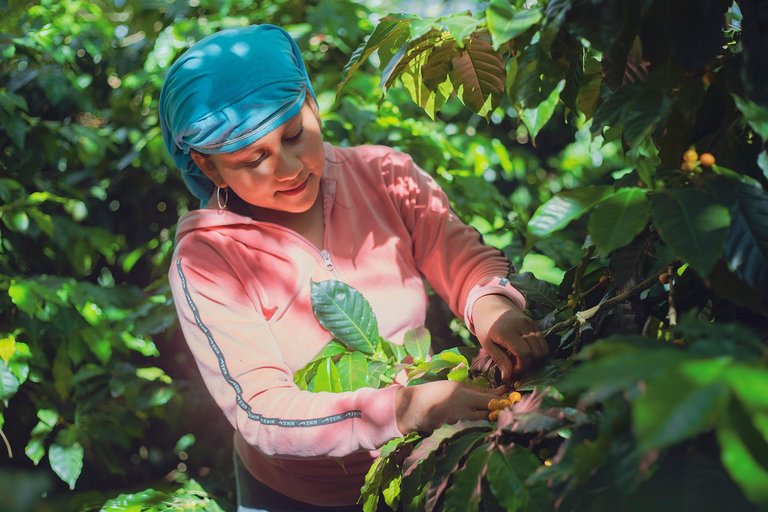Gender-Based Division of Roles/Labor |
The division of labor roles in Gayo farming families is taught by parents from generation to generation. The results of interviews with informants prove that nothing has changed regarding the division of labor since the past even though they have completed higher education.
This was expressed by both female and male graduates. The division of labor is based on physical strength, skills, and habits. This condition proves that the level of education does not affect the division of labor roles.
The division of labor is not only in the private sphere (home), but also includes the public sphere. In addition to the land, the division of labor is also applied in village deliberations that discuss agriculture.
However, the majority of women are not involved because one family is only represented by one person, who of course will be represented by the head of the family (male).
Parents teach their daughters how to farm since they are young, starting from being invited to do light work such as picking coffee during the harvest. When they grow up, they teach more knowledge and skills such as how to fertilize, control pests and how to plant. Since childhood, children are taught how to farm so that later they can continue their parents' agricultural business.
However, there are also graduates who have not been taught specifically by their parents, they can farm because they see firsthand how their parents work. If their family does not have a garden, their parents suggest that they look for work other than farming. Originally they did not have their own land, their income from farming was not too large, so they needed to look for other jobs with higher incomes.
Men do hard work such as clearing land, cultivating land, and planting. Women's work is more about maintaining plants and harvesting. Post-harvest activities are carried out together, such as grinding or drying coffee beans.
Meanwhile, those who go outside the house to do marketing are men, because women are "burdened" with the task of handling household or family affairs. As a comparison, this pattern also occurs in the role of women in a number of areas who work on rice fields from sowing seeds. But when it's harvest time to selling the harvest, it's the men who play a role.
Agricultural work is basically carried out by the nuclear family. However, if the nuclear family personnel are not sufficient, they provide opportunities for other families or close neighbors/extended families to help by providing wages. Meanwhile, wages, as discussed above, have several types of models and vary in level.[]

